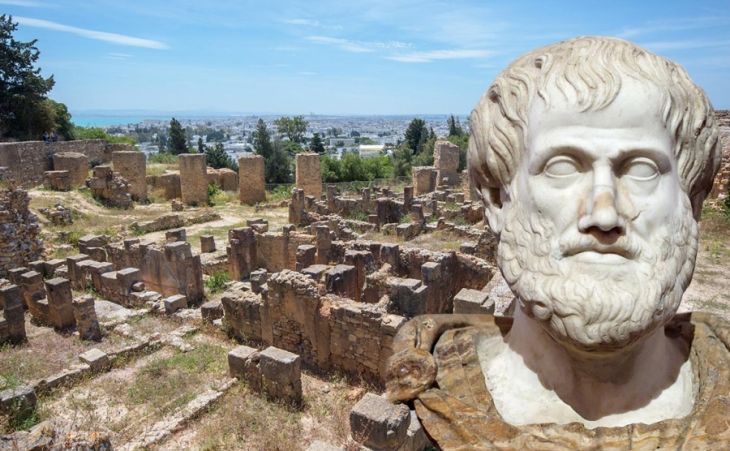In the opinion of the philosopher Aristotle, Carthage’s constitution was among the best three in the world.
Did you know that? The great Greek philosopher
Aristotle ranked
Carthage’s institutions among the best in the known world.
Carthage’s institutions ‘very superior’ to most others
In his work Politics, Aristotle makes a detailed analysis of the institutions of three states only: Sparta, Crete and Carthage.
He believed these three governments to be ‘very superior to all the known governments’ of his time (4th century B.C.).
He called Carthage’s institutions ‘excellent’ and its constitution ‘more complete than that of other states in many of its aspects’.
The constitution provided for a balance of power between the ‘kings’(elected leaders, called Suffetes) and the ‘Senate’ (or Grand Council).
When a disagreement arose between the ‘kings’ and the ‘Senate’, the problem was ruled on by a Popular Assembly.
Aristotle approved the Carthaginian system of appointing ‘kings’; they were elected on merit and for a term of one year only – unlike the kings of Sparta, elected for life.
There were other institutions, like the ‘Tribunal of the Hundred and Four’, and he judged the Carthaginian system of magistracy preferable to that of Sparta.
In his eyes, the proof of the value of these institutions was that they had never been changed, and that Carthage had never experienced ‘remarkably, either rebellions or tyrants’.
Two thousand years later, the great German historian Johann Gustav Droysen, a specialist whose work deals with the Hellenistic period, also praised Carthage. He wrote that here the state was not considered a divine institution, as in the East, but was ‘the work of men, whose essential interests it summarises and protects’.
On the tracks of a great Suffete
In 146 B.C., the archives and libraries of Carthage were burned by the Romans.
Thus there are now no witnesses as to how their institutions functioned.
But we can get an idea when visiting Byrsa Hill, part of the Carthage archaeological site, not far from current Tunis.
Its Punic quarter was certainly the work of a famous Suffete, Hannibal, elected to the highest office after his war with Rome.
Photo: Aristotle - Byrsa Hill in Carthage
Read more:
